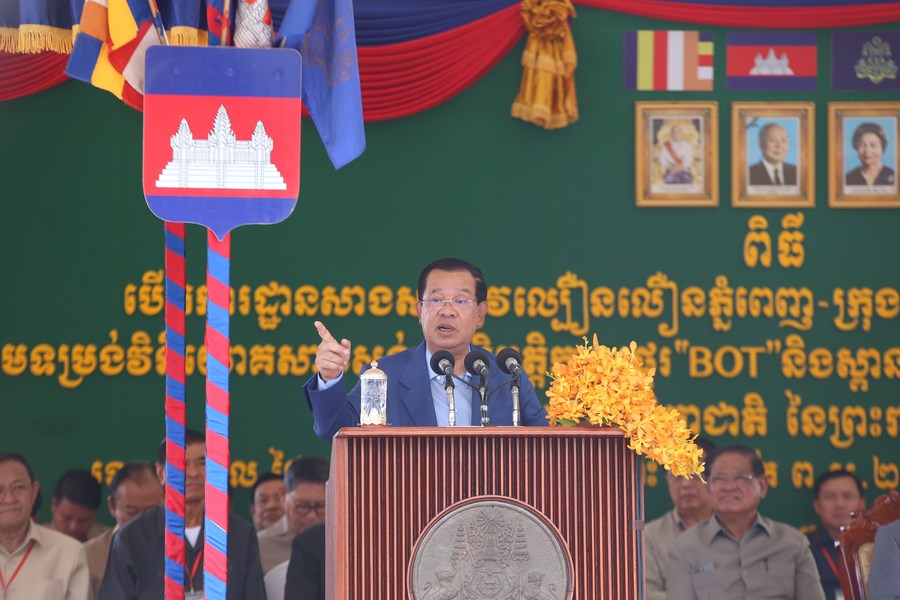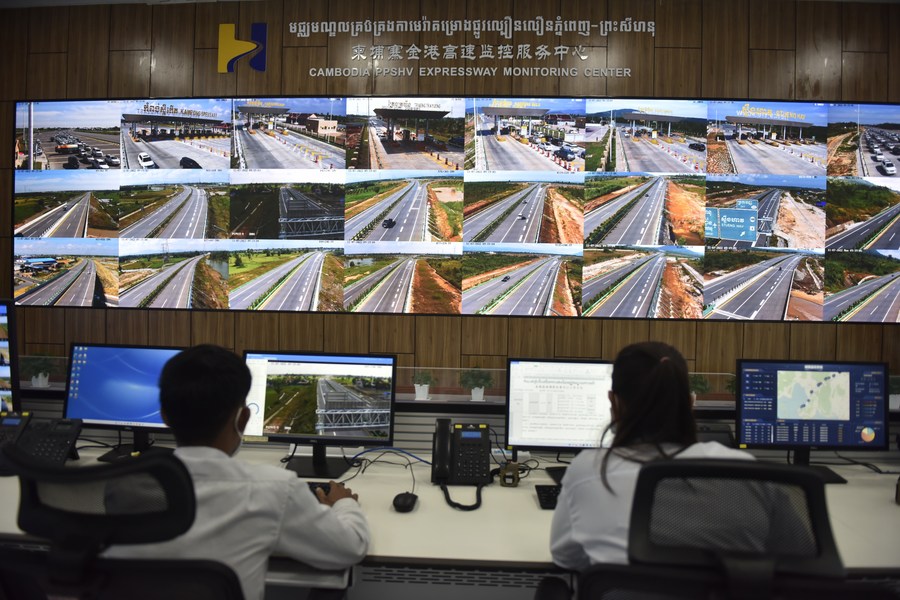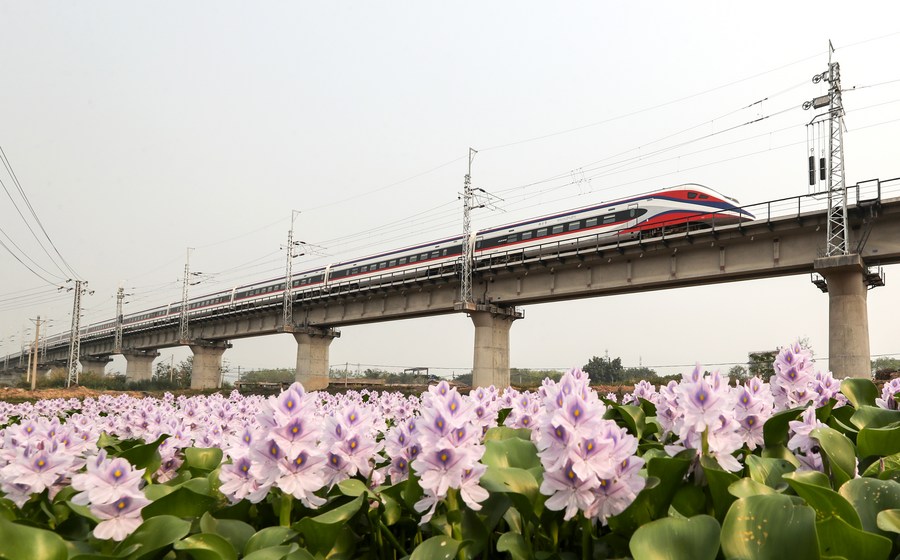Cambodian PM hails China's BRI's key role in development of Cambodia, ASEAN

This photo taken on May 21, 2023 shows the entrance of the Sihanoukville Special Economic Zone (SSEZ) in Sihanoukville, Cambodia. (Photo by Ly Lay/Xinhua)
Under the BRI cooperation framework, many Chinese-invested mega-projects have been carried out in Cambodia, including the Sihanoukville Special Economic Zone, hydropower plants, Phnom Penh-Sihanoukville Expressway, Siem Reap-Angkor International Airport, and Morodok Techo National Stadium.
KANDAL, Cambodia, June 8 (Xinhua) -- Cambodian Prime Minister Samdech Techo Hun Sen said on Wednesday that China's Belt and Road Initiative (BRI) has played a crucial role in the development of Cambodia and other member states of the Association of Southeast Asian Nations (ASEAN) over the past decade.
"Cambodia is one of the countries that has benefited from China's Belt and Road Initiative," Hun Sen said in a speech during the groundbreaking ceremony for Phnom Penh-Bavet Expressway, the kingdom's second Chinese-invested expressway.

Cambodian Prime Minister Samdech Techo Hun Sen speaks during the groundbreaking ceremony for Phnom Penh-Bavet Expressway, the kingdom's second Chinese-invested expressway, in Kandal province, Cambodia on June 7, 2023. (Photo by Ly Lay/Xinhua)
Under the BRI cooperation framework, a number of Chinese-invested mega-projects have been carried out in Cambodia, including the Sihanoukville Special Economic Zone, hydropower plants, Phnom Penh-Sihanoukville Expressway, Siem Reap-Angkor International Airport, and Morodok Techo National Stadium, he said.
"Through the BRI, Cambodia has received a great amount of grant aid, concessional loan and investment from China for infrastructure development," he said.

Staff members monitor traffic on the Phnom Penh-Sihanoukville (PPSHV) Expressway at the Monitoring Center in Phnom Penh, Cambodia on Nov. 7, 2022. (Xinhua/Wu Changwei)
The Cambodian prime minister said the Sihanoukville Special Economic Zone, a BRI flagship project in Cambodia, has become the Southeast Asian nation's largest industrial zone, accommodating up to 175 factories so far.
Hun Sen said that the BRI has also benefited other ASEAN member states and paves the way to world peace and development, adding that the initiative has neither created enmity toward any countries, nor blocked the development of other countries.
Describing the initiative as "global public goods and a major forum for international cooperation," Chinese Ambassador to Cambodia Wang Wentian said the BRI has deepened mutually beneficial cooperation for all participating countries including Cambodia.
"The BRI has helped more and more countries accelerate their economic development. This clearly shows that this initiative has provided a broad path to boost common development of all countries," he said in a speech at the groundbreaking ceremony.

This aerial photo taken on June 5, 2023 shows the construction site of Phnom Penh-Bavet Expressway, the kingdom's second Chinese-invested expressway, in Kandal province, Cambodia. (Photo by Ly Lay/Xinhua)
Neak Chandarith, director of the Cambodia 21st Century Maritime Silk Road Research Center, said BRI projects will continue to help Cambodia and other countries quicken their economic recovery from the COVID-19 pandemic.
"I believe that the BRI projects here will support Cambodia to achieve its ambitious goals of becoming an upper middle-income country by 2030 and a high-income country in 2050," he told Xinhua.
Joseph Matthews, a senior professor at the BELTEI International University in Phnom Penh, said the BRI has complemented the Master Plan on ASEAN Connectivity, and the initiative has provided great benefits to Cambodia, ASEAN and the rest of the world.
"The BRI has become a driving force to continue expanding cooperation among countries in the region and the world at large for the cause of common peace, security, prosperity and sustainable development," he told Xinhua.
Other ASEAN member states, such as Laos, Thailand, Indonesia and Malaysia, have also reaped significant benefits from the BRI, he said.
Matthews said the China-Laos Railway project, which links Kunming, capital of southwest China's Yunnan province, to the Lao capital Vientiane, is a great boon not only for the two countries, but also for other ASEAN member states.

The first cross-border passenger train departing from the Lao capital Vientiane to Kunming, the capital of southwest China's Yunnan Province, runs on the Ganlanba bridge of the China-Laos railway in Xishuangbanna Dai Autonomous Prefecture in Yunnan Province, April 13, 2023. (Xinhua/Shan Yuqi)
The BRI, a reference to the Silk Road Economic Belt and the 21st Century Maritime Silk Road, was initiated by China in 2013 to build trade and infrastructure networks connecting Asia with Europe and Africa on and beyond the ancient Silk Road trade routes.
According to official statistics, 151 countries and 32 international organizations have signed documents under the BRI framework as of January 6, 2023.


